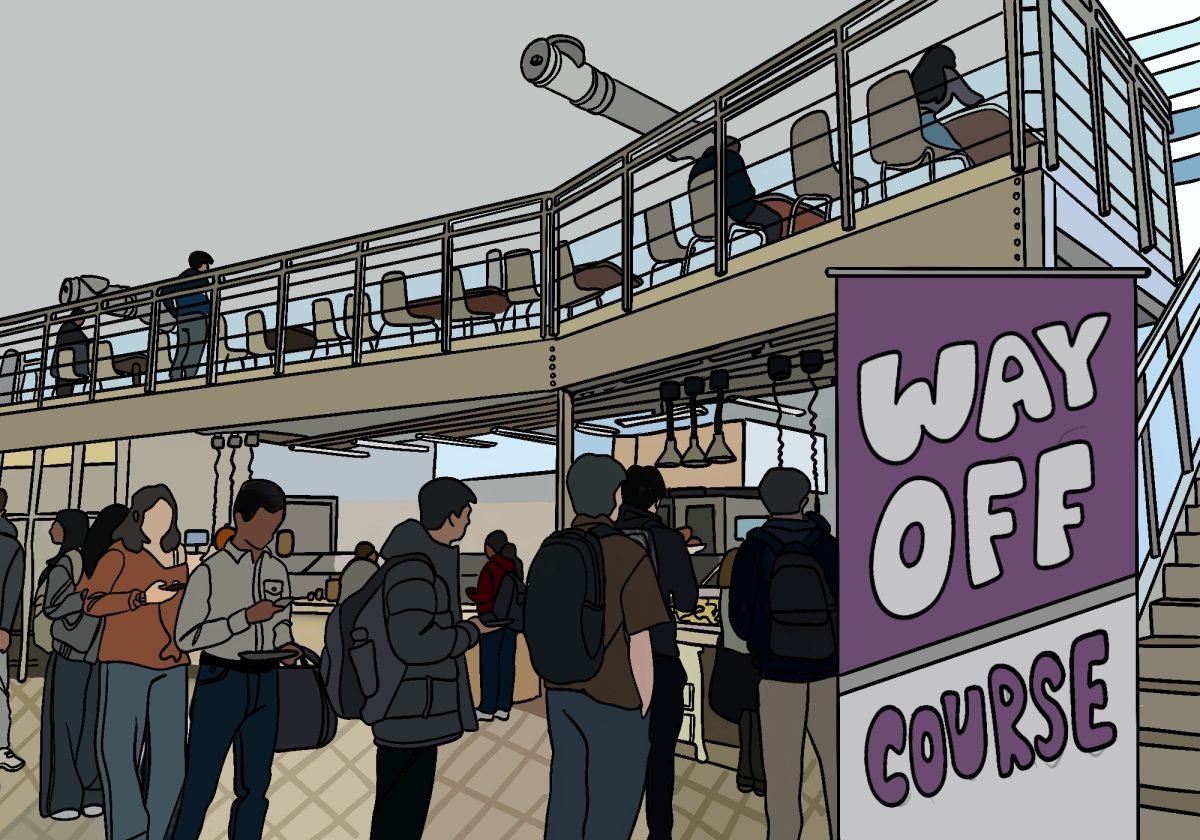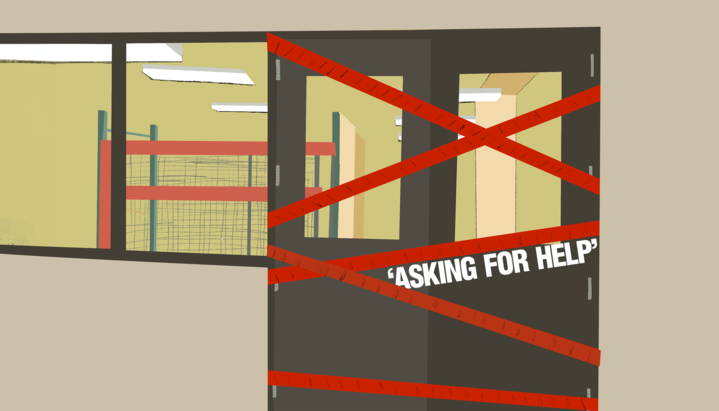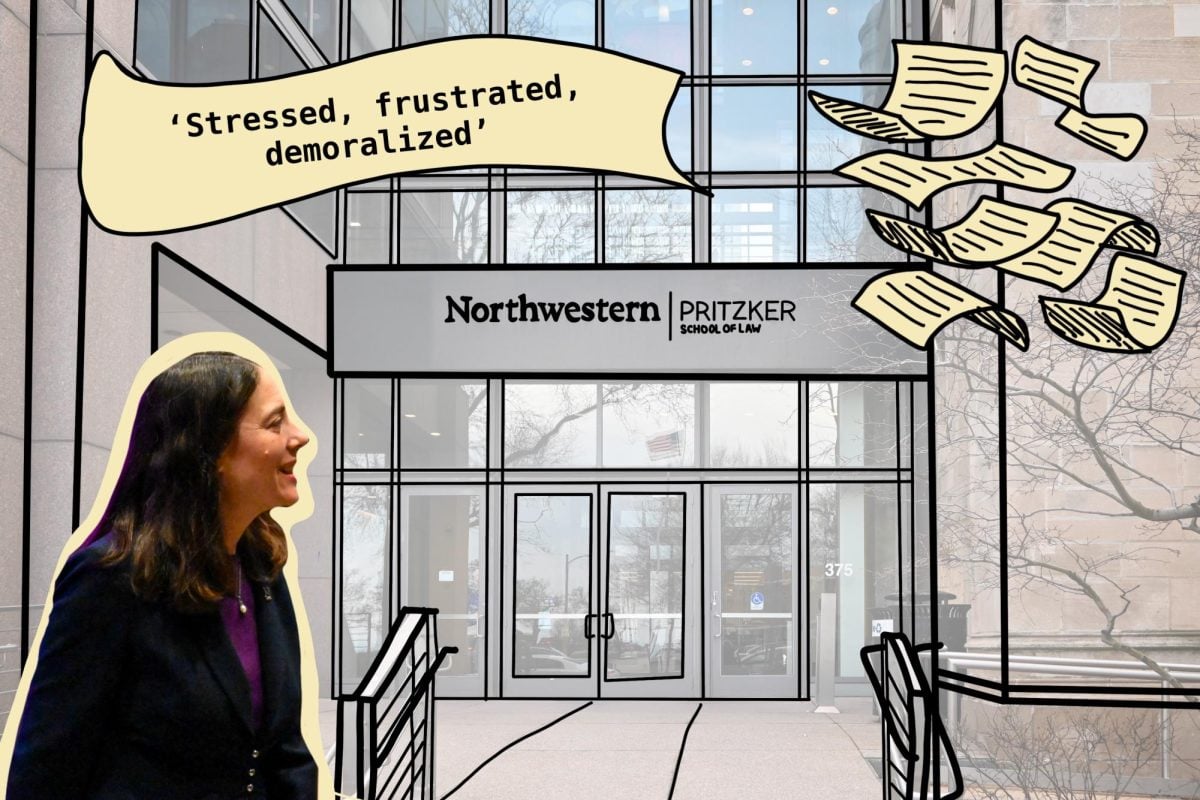Last May, the Associated Student Government passed a piece of “emergency legislation” in response to a controversial immigration bill that had just been approved by the Arizona Legislature. The non-binding resolution stated, in part, that ASG would work to “raise awareness and bring about a campus discussion” of illegal immigration.
It’s fair to say that goal has not yet been accomplished. While illegal immigration received widespread national attention in the past year, the issue has mostly flown under the radar at Northwestern.
Unbeknownst to almost all students, faculty and administrators, multiple illegal immigrant students do attend NU. THE DAILY has confirmed that there are at least three currently enrolled.
The students keep their immigration status secret, except to a few close friends and advocates. They prefer instead to keep a low profile and study, work and party like any other student.
Two declined to be interviewed for this article, while the third agreed to speak anonymously.
“Northwestern either caters to people who have permanent residency and citizenship, or they cater to international students,” the NU junior said about the University’s handling of illegal immigrant students. “There’s no real focus on this gray area.”
University President Morton Schapiro and many other top NU administrators said they support illegal immigrants attending the University, although they admitted they had no idea if any were currently enrolled or had been enrolled in the past.
While applicants are not asked about their immigration status when applying to NU, illegal immigrants face a significant barrier to attending the University: its $56,000 per year price tag. The federal financial aid policy does not allow for any aid to go to illegal immigrants, and NU – like almost all universities in the U.S. – does not provide special support for those without documentation.
A handful of private universities with large endowments do provide special scholarships for illegal immigrants. But several NU administrators said offering these kinds of scholarships or changing NU’s financial aid policies to support undocumented students would be prohibitively expensive for the University.
The administrators added that the troubled economy has placed unprecedented strains on NU’s aid pool. Offering special aid to undocumented students would take resources away from domestic students with financial needs.
But despite these challenges, a group of NU students is pushing to make it easier for illegal immigrants to attend the University.
The group’s proposal, which is still being developed, will ask for more University-funded financial aid options for international students, including undocumented applicants. More generally, it will ask the administration to make it more widely known that NU accepts illegal immigrants and is willing to help them finance their education.
The group is planning to hold a community forum to discuss the issue next Thursday, Feb. 17, at 7 p.m. in room L07 of Harris Hall, 1881 Sheridan Rd.
‘Insanely expensive’
In December, Schapiro joined eight other Illinois college presidents in signing a statement supporting the Development, Relief and Education for Alien Minors Act. First introduced in 2000, the DREAM Act allows high school graduates who came to the U.S. as children to apply for conditional permanent residency if they complete two years of college or military service.
“The University has strongly supported the DREAM Act for quite some time now,” University spokesman Al Cubbage said.
The latest version of the DREAM Act, which narrowly failed to pass Congress in December, restricts illegal immigrant students from receiving federal higher education grants like Pell grants. Students seeking permanent resident status under the revised bill would only receive federal student loans, which must be paid back, and would be able to participate in federal work-study programs.
Because of this, the bill would not necessarily put an NU education within reach for illegal immigrant students, said Bradley Akubuiro, a Medill senior who is heading the proposal.
“A student who was going to apply to NU under the DREAM Act would still not be able to attend because they wouldn’t be able to obtain the necessary funding from NU or from the government,” said Akubuiro, the chairman of Access to Opportunity Movement, a student-led equality group. “So if you’re interested in going to a school like NU, even with the most recent DREAM Act, it would still be a dream for you.”
That’s because under the University’s current policy, illegal immigrants are considered international students. NU allocates 1.5 percent of its annual financial aid budget for international students. Although the NU Admissions Office is need-blind to domestic applicants, it is need-aware for international applicants.
Therefore, while it’s technically possible for undocumented students to get financial aid, it’s unlikely.
“I don’t believe we have ever awarded financial aid to an undocumented student,” Cubbage said.
Changing NU’s financial aid policy would be extremely expensive, said Christopher Watson, NU’s dean of undergraduate admissions.
“Probably over 90 percent of universities don’t offer any aid to international students. The fact that we offer even a little bit is quite rare,” Watson said.
Fewer than 10 universities in the U.S. are need-blind for international students. Williams College was part of the list during Schapiro’s tenure as president but ended the practice last February due to the college’s “changed financial situation,” according to an official statement.
“It was insanely expensive, and they couldn’t afford it,” NU Provost Dan Linzer said of Williams’ policy.
“There are very few schools that can afford it,” he added. “And sure, that’d be great if we could do it. Can we afford it right now? No.”
Linzer also expressed concern that increasing financial aid for illegal immigrants would reduce the amount available for domestic students. That area is the University’s “top priority,” Linzer said.
The economic crisis has already stretched financial aid resources thin, he said.
“Our outreach to students who are first-time family members going to college, who are coming from lower-income families, who are coming from urban public schools – those needs are much higher than they were even two years ago,” Linzer said.
In 2003, then-University President Henry Bienen said providing aid to undocumented students would “(deprive) others of resources.”
A proposal in its infancy
Students working on the illegal immigrant student proposal are well aware of the administration’s position on the feasibility of offering more aid. In response, they are compiling research on peer universities’ policies toward illegal immigrant students to see what can be implemented successfully at NU.
Their next step is developing a list of requests for the University “that will range from costing nothing to requiring some real investment,” Akubuiro said. This includes asking the University to publicly promote its acceptance of illegal immigrant students and to designate an administrator to handle problems they may encounter.
The students are planning to meet with administrators involved in enrollment and financial aid, student services and academic services. Meanwhile, they’re working to spread awareness of the issue at NU.
“Ultimately, it’s not going to change overnight,” said SESP senior Maria Salazar, who is leading the proposal with Akubuiro. “Right now we’re working on a lot of smaller goals that will set the stage for the big ask: a change in the financial aid policy.”
Salazar came with her mother and sister to the U.S. on a tourist visa from Peru in 1997 but overstayed by several years. She received permanent residency just before applying to NU.
The relat
ionship between administrators and students working on the proposal has been amicable thus far, both sides said.
At the University of Chicago, 60 students, some who publicly acknowledged their illegal status, gathered on the campus last May to demand the university offer merit-based scholarships to undocumented students and that the school publicly support the DREAM Act. Although the administration did neither, in October they publicized their “commitment to all qualified students regardless of their citizenship status” and established a point person for undocumented students in need of support.
A July 2010 study by the National Association for College Admissions Counseling showed that 60 percent of 382 four-year nonprofit colleges surveyed had received applications from undocumented students, including more than 86 percent of the most selective ones. NU did not participate in the survey.
The few prominent universities that are upfront about their support for undocumented students - such as Brown, Stanford, Cornell and Harvard Universities – are typically able to set aside aid for these students from their large endowments.
“Private schools offer more flexibility,” said Roberto G. Gonzales, a prominent DREAM Act activist and University of Washington professor. “At Northwestern, if there was a policy that allows for a special university scholarship where immigration status is not required for award, the ability of undocumented students to attend would be eased substantially.”
The amount of support a university gives usually depends on the campus climate toward illegal immigration. Resources are more available at schools like University of California, Los Angeles, where there is a large, vocal illegal immigrant population demanding ease of access to higher education. But at NU, changes are unlikely without increased student demand.
“Right now the campus isn’t united on this issue. Some might be for it and others are against it,” Salazar said. “Our short and long-term goal for this is changing the culture of how we view and understand undocumented students.”
Revisiting an old issue
Akubuiro and Salazar’s proposal does not represent the first time NU students have attempted to make their university more accessible to undocumented students.
In 2003, two illegal immigrant applicants were accepted to NU but were unable to afford tuition. A group of students urged ASG to pass a bill asking the Board of Trustees to award the students funds they would have otherwise received from federal grants and loans. The bill ultimately failed due to high costs and legal complexities.
One of the admitted applicants, Diana Rashid, told THE DAILY in December 2010 that Bienen offered her a special scholarship at the time. She declined on principle, not wanting an unfair advantage over illegal immigrant students who came after her.
Rashid, now a permanent resident through marriage, graduated from the University of Illinois and is studying law at the University of California, Berkeley.
“Getting in is not the problem at NU or anywhere else. If you have the grades and you’re good enough, you’re going to get in,” Rashid said. “The problem is more, ‘How am I going to keep paying the tuition?'”
After the controversy in 2003, the issue of illegal immigration at NU fell from the spotlight until the Arizona Legislature passed a high-profile immigration bill last spring that gives police more leeway in asking citizens for their immigration status.
Limited ability to help
Illegal immigrant students and advocates said they appreciate NU’s support of the DREAM Act but wish the administration would take the next step in supporting undocumented students.
The undocumented NU junior who agreed to speak with THE DAILY called the administration’s position on the bill a “somewhat passive” move.
The junior’s is an unusual case. A longtime resident who legally entered the country as a child, she was unaware her visa expired until she received a notice from the U.S. Department of Homeland Security. That notice asked her to appear at an immigration hearing, essentially the first step in the deportation process.
Her future has grown uncertain in the past six weeks as her job search shifted to finding an employer that will sponsor her citizenship and offer her a job.
“Any undocumented student here knows what it took to get here,” she said. “To be here at all is a little bit of luck and a little bit of skill. It’s not something I’m willing to give up.”
Although representatives from NU’s Office of General Counsel and its International Office would not comment on the junior’s specific case, both stated that the University cannot get in the way of Immigrations and Customs Enforcement in the hypothetical case of a student’s deportation.
“Unfortunately not,” said Ravi Shankar, director of NU’s International Office. “Because A, it’s not a typical academic issue and therefore it’s beyond our jurisdiction, and B, depending on the order there could be any number of reasons why they were called to a hearing.”
The International Office regularly deals with University-approved immigration attorneys when international students run into problems with their green cards and visas. But students’ immigration statuses are self-disclosed, and thus the office does not know of any illegal immigrant students or have the proper resources to assist them, Shankar said. The University can, however, help a student facing deportation in finding immigration counsel.
Perhaps most importantly, universities can stop deportations by calling attention to them. In recent years, U.S. immigration officials have called off deportations at prominent schools in response to outcries from administrators and advocates.
Last June, an undocumented Harvard student was detained in a Texas airport when he tried to use his school ID to board a plane. Following a national uproar, U.S. Immigration and Customs Enforcement said they would not pursue the deportation of Eric Balderas, a molecular and cellular biology student on a privately-funded Harvard scholarship.
There have been a handful of instances in which students have entered NU while in the process of becoming a permanent resident, Cubbage said. In those cases, the University provided “bridge financing” for those students until they became eligible for federal financial aid.
In addition, University Police’s policy towards illegal immigrants is particularly lenient. They will turn over illegal immigrants to ICE “only in cases involving arrests for a felony, and/or human trafficking,” Chief of Police Bruce Lewis wrote in a statement last spring.
But ultimately, in cases like the NU junior’s, there is almost nothing the University can do to help.
One Northwestern
The students hope their proposal will shed light on the plight of people like the NU junior. They said their ultimate goal, getting more aid for illegal immigrant students, will only come with wide student support.
The forum next Thursday represents the first step in that effort, the activists said.
Moreover, the students said they want the entire NU community to recognize that the University is not immune to the national issue of illegal immigration. In order to live up to the “One Northwestern” vision that administrators promote, they said, the barriers for undocumented students must be torn down.
“I definitely want a campus that lives up to its diversity statement: that we are one community, whether someone is a student or faculty or the guy who cleans the bathroom,” Salazar said. “We need to have a climate that’s supportive enough where they can come forth and say, ‘I’m undocumented,’ without fear, knowing they have a community that backs them up, and we don’t have that right now.”












